Outreach Screening and Basic Clinical Services
The Community Dentistry team of Dow International Dental College (DIDC) visited the Central Jail Karachi from January till February 2025. The team co-created this project with the male jail inmates through the Central Jail administration. One jail inmate who was death sentenced volunteered to get hands-on training to assist our postgraduate trainee in Community Dentistry to provide basic dental treatments to the other jail inmates suffering from dental problems.
Our undergraduate students were involved in examining dental issues in male jail inmates who were being referred to the basic dental set up inside the Jail premises where our postgraduate trainee was performing tooth extractions, impacted tooth extractions and root canal procedures. Basic dental fillings using ART procedures and scaling were also provided by our dental hygienists. Other jail inmates were involved for dental recording, monitoring, follow-up visits reminders to the other fellow inmates and delivery of self-care oral hygiene and post-op instructions.
Over the period of four-weeks 570 male inmates (age range= 18 – 75 years) were examined for their oral health status along with screening of their non-communicable disease (NCDs) status. The most prevalent oral problems observed in these inmates were decayed teeth (78%) followed by poor oral hygiene (60%) and calculus (50%). On the other extreme almost 2% of these inmates were found suffering from Oral Submucous Fibrosis which is a pre-malignant state of oral cavity.
Within limited resources, almost 10% of these inmates were provided oral urgent treatment (OUT) during these visits such as mobile and painful tooth extractions, ART (atraumatic restorations / tooth fillings), oral hygiene instructions (OHI) and periodontal prophylaxis. Regular reinforcement regarding maintenance of oral hygiene and oral health education is found crucial in this population group, therefore, we trained some jail inmates who were found the quickest learners amongst them.
It was challenging for us to observe that majority of these inmates demanded for their teeth replacements and others were reluctant to get their bad teeth extracted because of the limitation that they cannot leave the jail for their teeth replacement procedure. Our dental technologists were eager to provide their services by proposing fabrication of single-unit removable dental prothesis based on virtual measurements. Another challenge was that although there was a dental set up inside the health facility of the Jail, yet there was severe shortage of trained assistants and qualified dentists and the dental material that existed was mostly expired due to lack of utilization. The contribution was made through our department to arrange necessary dental material, material for periapical x-rays and individually sterilized and packed sets of dental instruments. therefore, only around 10% of the inmates suffering from dental problems could be treated. The project is still under process to assess the feasibility of providing removable dental prosthesis to these inmates. However, the sustainability of this project is dependent on the availability of funding.
The team was led by Chairperson Community Dentistry – Prof. Dr. Ambrina Qureshi, Dr. Qaiser Ali Baig and Dr. Mustafa Naseem with members including Dr. Rida Batool, Dr. Ather Khan (Masters Trainee) and Dental Hygienists- Mr. Habib Shah and Ms. Misbah Noor from School of Dental Care Professionals. On the other side, the team of facilitators (Sindh Police Officers and staff) from the Central Jail was led by SSP Abdul Karim Abbasi and AIG Imtiaz Ali Soomro. The teams especially acknowledged the support from the Vice Chancellor of Dow University of Health Sciences (DUHS), Prof. M. Saeed Quraishy (T.I.) and the Registrar DUHS Dr. Ashar Afaq.
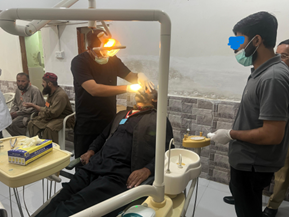
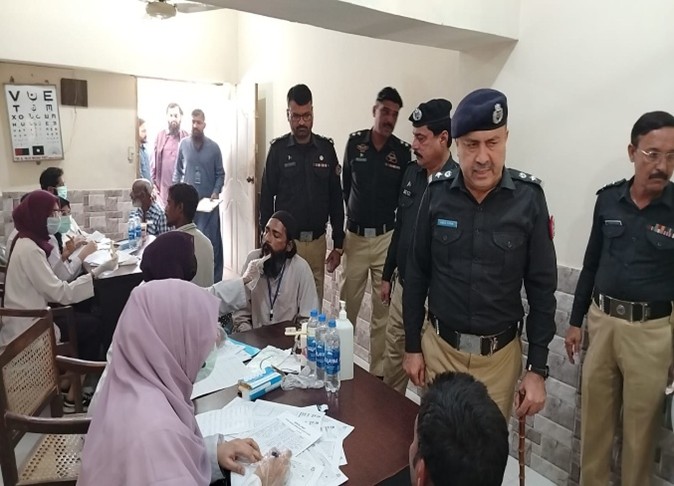
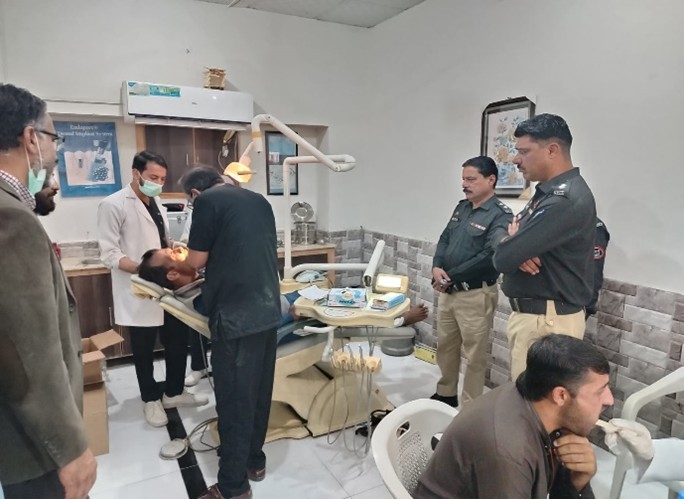
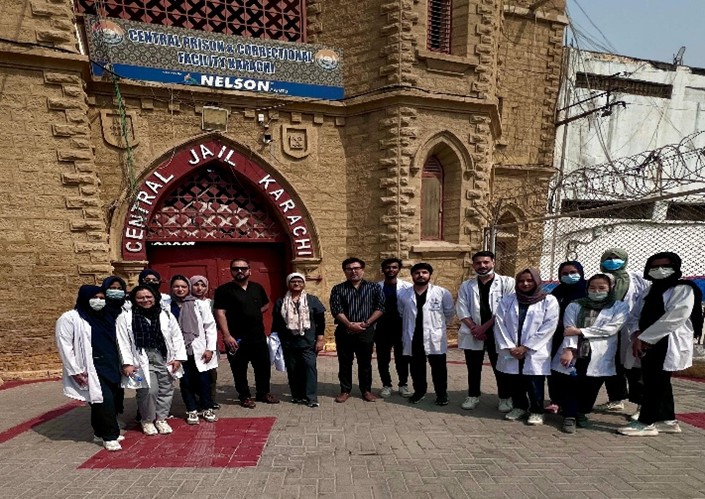
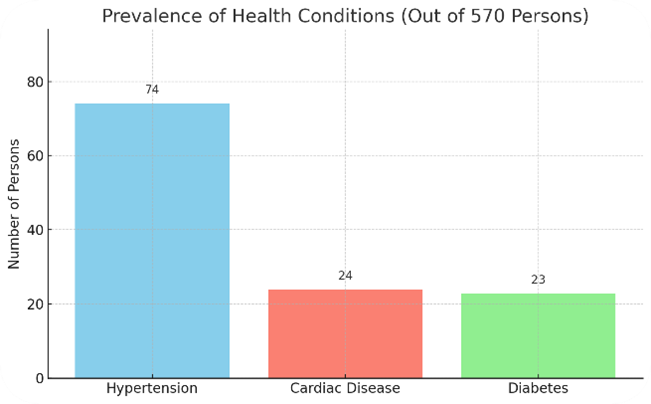
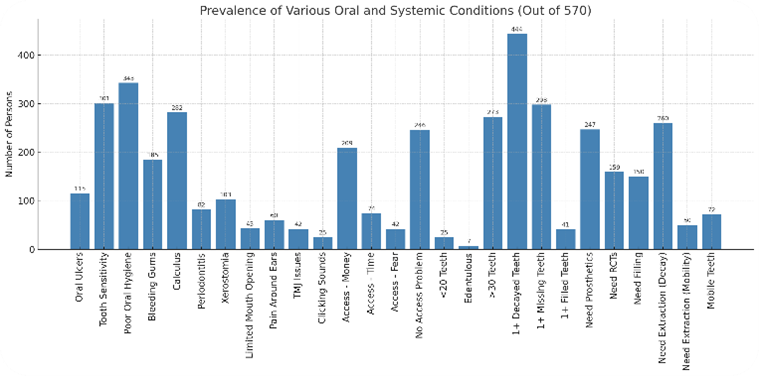
Target achievements and sustainability:
SDG- 3 (Good health and well-being) through disease prevention and promotion of better oral health
SDG- 17 (Partnership for the goals) through trans – institutional collaboration, students’ partnership during training and learning, capacity building and shared resources
SDG-16 (Peace, Justice and Strong Institutions) by promoting equality, upholding human rights and reducing disparities in oral health of inmates
